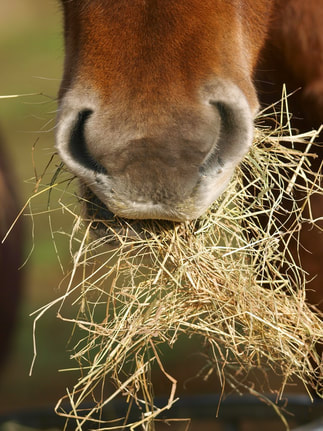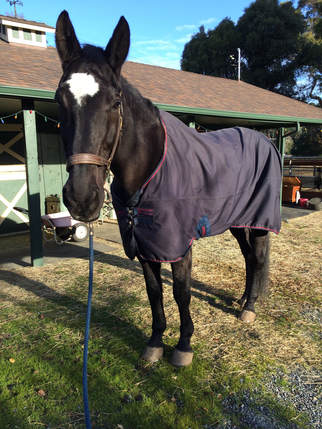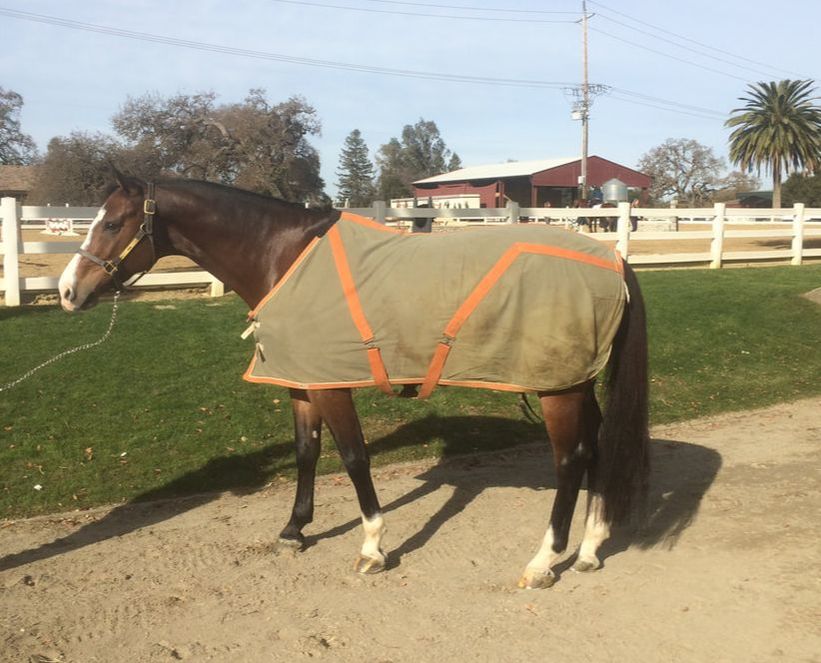|
There are many questions regarding what changes to make in your daily routine to help your horse thrive during the cold winter months. With the help of their owners, horses can live in comfort year round with some small modifications. These include feed alterations, water adjustments, supplemental blanketing, mud management, riding changes, and shelter arrangement. Feed Alterations:
Water Adjustments: During the winter many horses decrease their level of water consumption. Owners can help their horses stay healthy and hydrated by encouraging them to drink using several different techniques. Studies have shown that when horses are offered slightly warmer water vs. the cold, icy water directly from the hose, there is an increased likelihood of them drinking more regularly. This can be accomplished by using a number different bucket or tank heaters, or by adding warm water to their feed twice daily. Several other methods of encouragement include offering free choice mineral blocks or topping a small amount of grain with electrolytes. It is important to keep your horse hydrated during these cold months because decreased water consumption could lead to impaction colic and an overall decrease in health and wellbeing.
Mud and Shelter Management:If horses are turned out in a pasture, it is necessary for them to have some form of shelter to enable them to get away from winter elements and mud. Shelters come in a variety of forms, and the type you use is largely dependent on a specific facility and finances. It is important to ensure shelters have adequate space for the number of animals and their natural hierarchy behavior. Shelters are a great way to allow horses to get out of the mud as well. If a horse is unable to have a break from standing in constant mud, they can develop issues such as fungal and bacterial infections, which will not only be bothersome for them, but will require you to have to spend extra time cleaning the area, as well as figure out a mud free area to house them until the affected wound has been cleared. Daily brushing and washing is a great preventative measure to help avoid issues. Riding and Care changes:In the winter we find that many horses are on what seems to be a winter break. Research has shown that this break can drastically increase the amount of time it takes a horse to come back into full working shape in the spring. By keeping horses on a slightly decreased, but consistent work schedule during the winter it will help shorten the time it will take for horses to get back to their normal performance levels. There are however modifications that need to be made to riding schedules during cold winter months. Warming up and cooling down are of even greater importance at this time of year. A good rule of thumb is to spend twice as much time at these aspects of the workout than you do when the weather is warm. Also, make sure your horse is cool and dry before putting them away. Winter Do's and Do Not's
Starwood Equine Veterinary Services is happy to answer any additional questions about how to help you and your horse better prepare for winter!.
0 Comments
|
Topics
All
Archives
May 2021
|
Privacy Policy | Copyright © 2019 Starwood Equine Veterinary Services, Inc. All rights reserved.




 RSS Feed
RSS Feed